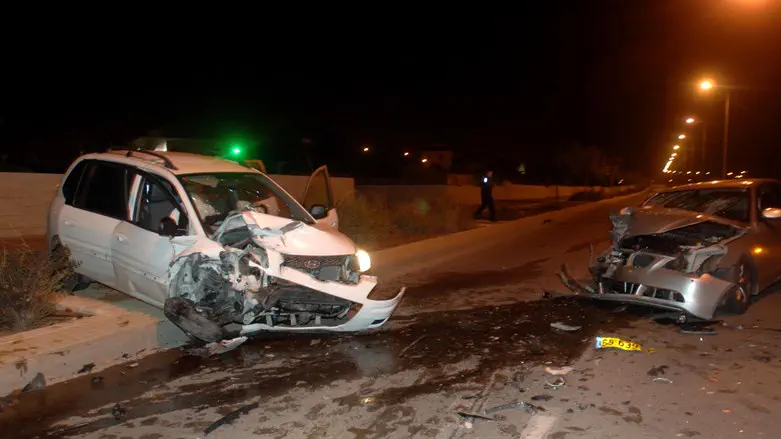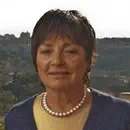
An old Jewish adage says that "every delay is for the good." I was reminded of that while reading the book "First the Saturday people, and then the…" by Bruce Portnoy, published in 2015 to excellent reviews. Had I read it then, I would have considered this page-turning thriller taking place in the Midwest and Israel a good read, but might also have seen it as another far-fetched fantasy on what an author imagines goes on behind the scenes in international undercover intelligence operations, another impossible spy story that would make a great action film.
However, events since the book was written make those political intrigues eerily believable, so that reading it now is all "for the good" as the adage says, and therefore, recommended.
From its riveting beginning, the book begins to unravel a story with layer upon layer of reality, starting with a husband whose wife is critically injured and daughter killed in an accident he thinks his drinking has caused and her father's wheeler-dealer American-Jewish way of handling the situation. But that, while engrossingly interesting, is only the surface.
Page by page, the layers unfold. Readers need to pay attention to who is narrating each chapter as the scenes follow one fast upon another. Wolf's guilt is not so simple. His wife, an ordinary teacher active in organizations helping Israel as far as he knew, was involved in something far deeper, and the car crash was not as clear as it seemed to be to Wolf and his father in law. It turns out that she was corresponding with the son of a Lebanese diplomat who discovered that a large scale catastrophe to take place in Israel had been carefully planned by Iran. Disaster was imminent, on a scale that would inexorably lead to the destruction of the Jewish State. So Israeli powers work behind the scenes to keep Wolf out of jail despite his vengeful father-in-law's attempts to sway the results, but they can't keep him from wanting to stay in the picture.
Events expand from there, with a second-generation American, a Christian Arab and retired FBI agent who has a sense of justice equal to Wolf's, fueled by his granddaughter's innocent question about what he did to stop the Holocaust, joining him in trying to prevent it from happening again. While investigating and in constant danger, the two candidly discuss their views on Israel's existential vulnerability amid the Palestinian Arab narrative, an issue that is brought to the fore in other parts of the book in a clear and forthright manner, making it more than just a thriller.
Scenes that might have seemed fictional license when the book was first published have actually become quite credible, making the author seem prophetic. At some point, Wolf is spirited away to Israel in an ingenious way that has certainly been used by Israel's secret service. The Israeli soldiers dressed as Arabs who rescue Wolf from a Palestinian Arab hospital in a daring mission predate a similar rescue that actually took place a short while ago, while the IDF has daringly managed to enter Iran itself on more than one occasion. (On the other hand, the book does have two or three very minor inaccuracies, but they all have to do with IDF rules and Orthodox Judaism – soldiers in active service are not allowed to put down their weapons to dance at weddings as the author writes, but must carry them all the time - my IDF grandsons schlepped their unwieldy weapons to shul and meals throughout a hotel Shabbat that we treated them to while on leave - and in an Orthodox home, Shabbat synagogue service occurs before returning home for the meal, not afterwards, as described in the book.)
More of the book's undercurrents have to do with the traitors in each system, from the anti-Israel operatives in American intelligence who run a deep state system of their own, to the presence of a traitor among Israeli public figures. Recent events in both countries also make that less unbelievable than when the book was first written.
In fact, the book leaves some of its characters' stories unfinished, as is the Islam-Israel conflict, making it extremely believable. And what seems like an impossible alliance between two Americans, one Christian Arab and one Jewish Zionist, may be the author's way of telling readers that the real danger comes from a third actor, expansionist Islamic Jihad.
Giulio Meotti, Arutz Sheva's acclaimed writer on the state of Europe, has written that the expression "'On Saturday we kill the Jews, on Sunday we kill the Christians', or with greater tact, 'first the Saturday people, then the Sunday people', is not just a slogan. It deals with a precise program of religious cleansing, pronounced by Islamist leaders and promulgated by Jihadists."
This fast-paced book, an exciting multi-layered thriller, filled with twists and unexpected turns, leaves readers to ponder what else lies ahead for the technologically advanced global village some of whose nations cannot seem to control the desire to destroy or conquer others, thus turning the benefits of technology into weapons of nuclear war.
And, yes - it really would make a great movie.
